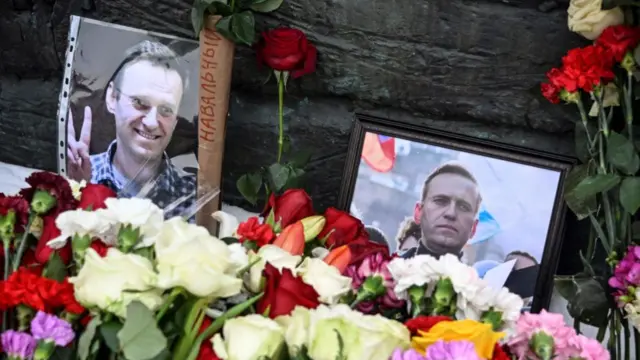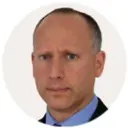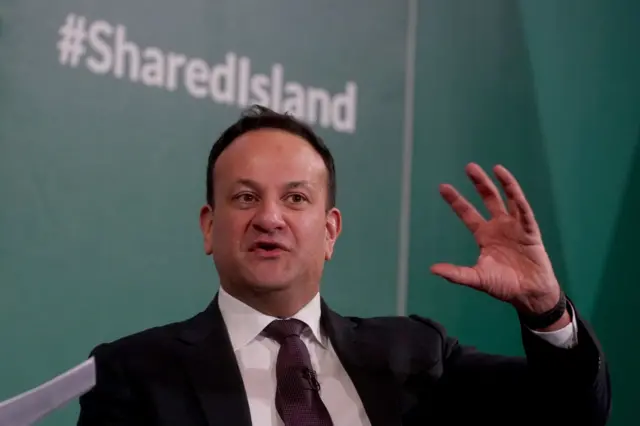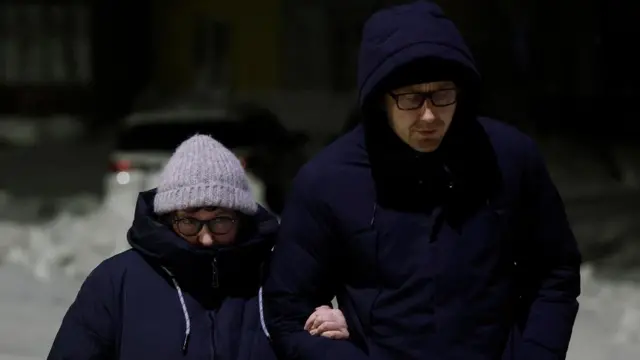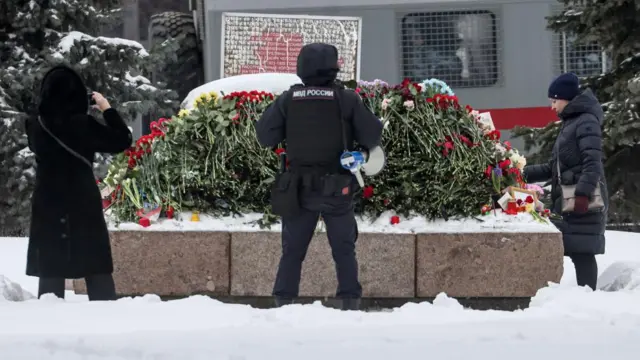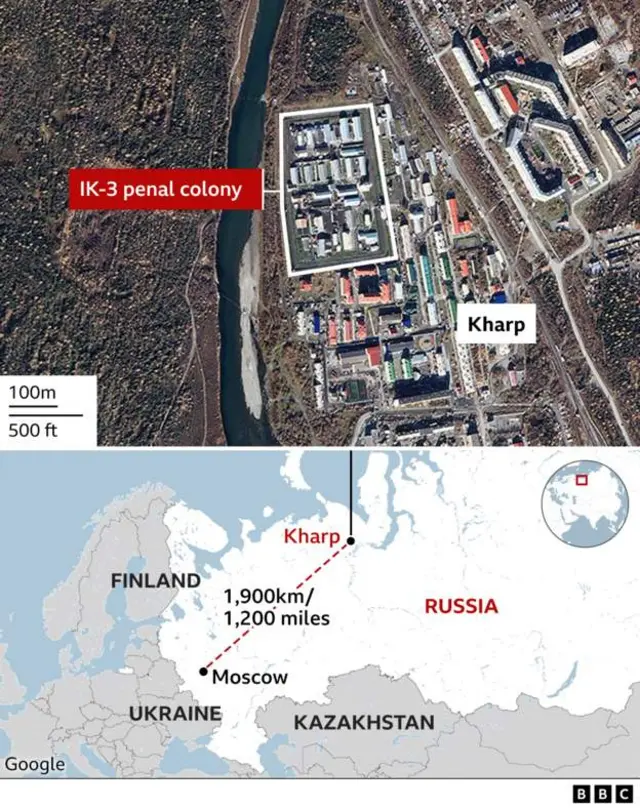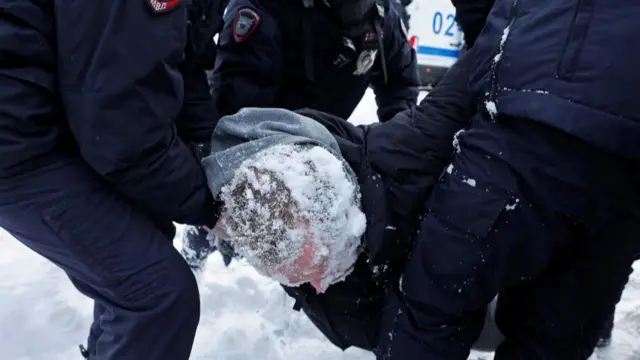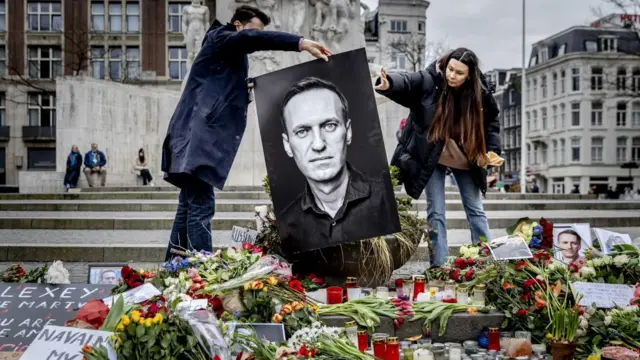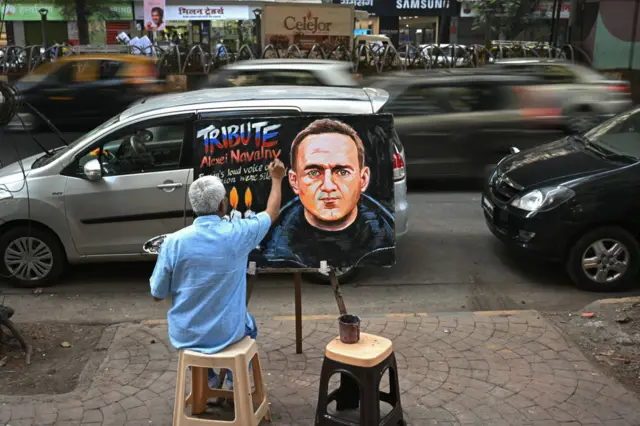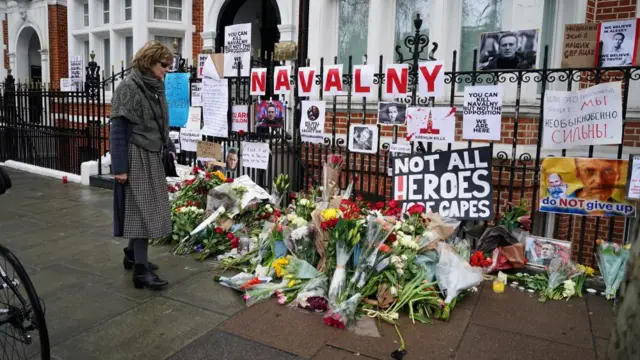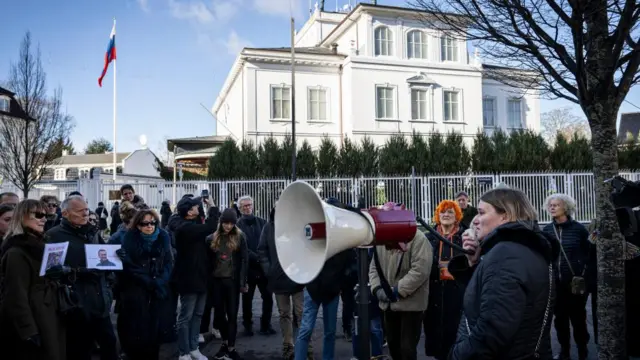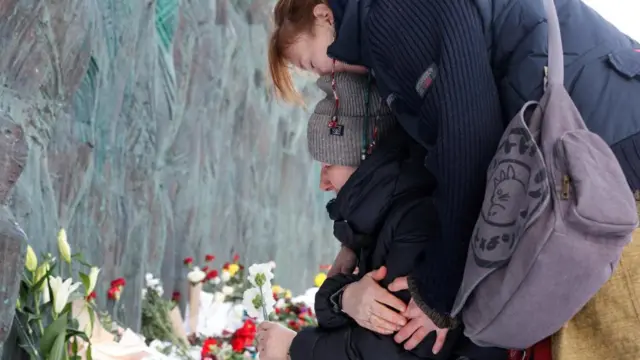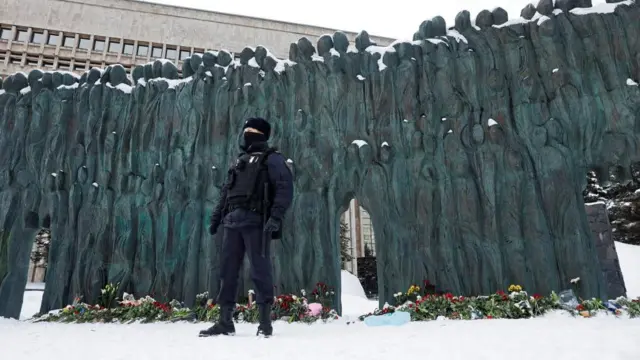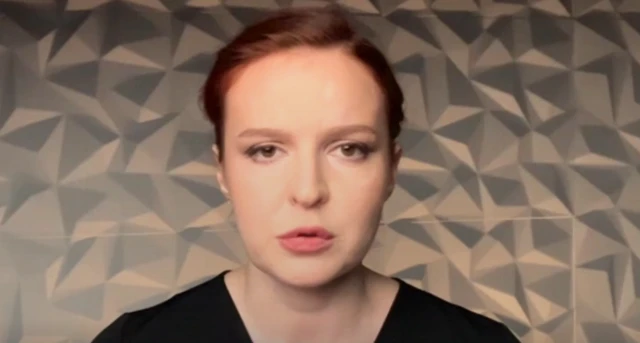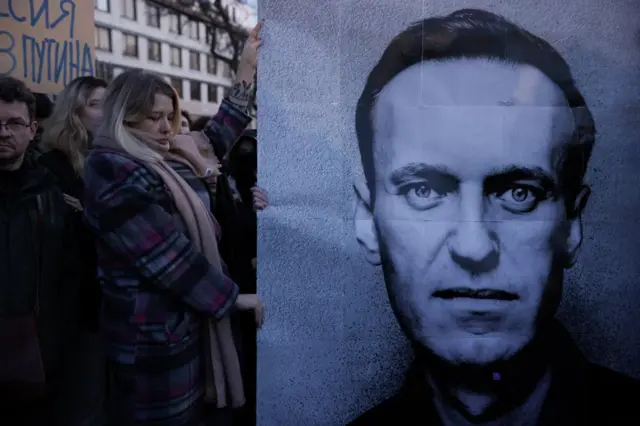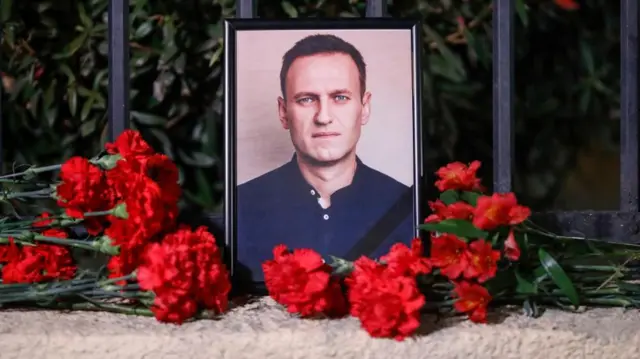Postpublished at 18:15 GMT 17 February 2024
While we're closing this live page now, there's still plenty of stories across the BBC News site on Alexei Navalny's death:
- You can read our news story here on today's developments
- Our Russia editor Steve Rosenberg reports from Moscow on the grief, defiance and hope among Navalny's supporters
- Watch this video here to see the tributes, vigils and arrests that have been taking place across Russia
- This profile of Navalny details how he was Vladimir Putin's most vociferous critic and outlines his political activism
- Want to know how Russian state media are spinning Navalny's death? Then click here
Today's coverage was brought to you by Alex Therrien, Tarik Habte, Marita Moloney, Maria Zaccaro and Ruth Comerford. Thanks for joining us.
